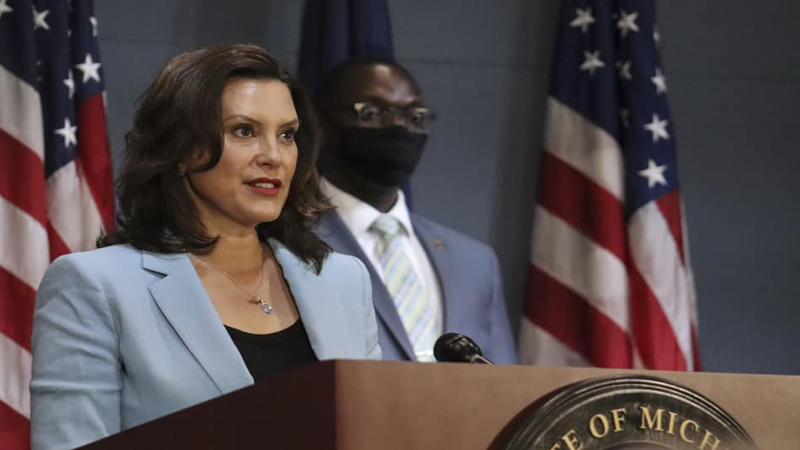Gov. Gretchen Whitmer | Facebook
Gov. Gretchen Whitmer | Facebook
The Michigan Supreme Court has recently ruled that some executive orders Gov. Gretchen Whitmer has issued under her pandemic-related emergency powers were unconstitutional.
Matters were brought to the attention of the court after the Mackinac Center Legal Foundation filed suit against the governor. Patrick Wright, director of the Mackinac Center Legal Foundation and vice president for legal affairs at Mackinac Center for Public Policy, spoke with WJR's "The Frank Beckmann Show" about the recent rulings.
The governor has been handed a trio of defeats.

Patrick Wright, VP Legal Affairs
| Mackinac Center
"This one is recently related to the case we won a couple of weeks ago," Wright said on the radio program. "She tried essentially to tell the Supreme Court to say, well, don't worry about that case for a month. And the Supreme Court rejected that idea and said, no, our orders apply immediately. And all of her executive orders after April 30 were unconstitutional or illegal."
Wright agreed with Beckmann that, although it appears the governor has lost the battle, the last of this issue has not yet been heard.
"Six out of the seven justices expressly stated, and Justice Bernstein actually implied it," Wright told Beckmann. "And that is, if we could just get the governor and the Legislature to please work together, it would be beneficial to all of us. We would get the buy-in that would be necessary from the citizens of the state. There would stop being such acrimony over unilateral decisions. And so hopefully the end result is what we generally want in our system of government, and that is for mutual consensus to be reached, people to make compromises and they reach the best public policy that way."
Many in the Legislature have called for the end of the governor's emergency powers, acknowledging that better solutions can be found to combat the virus when more minds come to the table.
"We’re living in unusual times," Wright said on the radio program. "We do recognize that the COVID is still out here, it’s still dangerous. We’re closing in on 6,900 deaths here in Michigan and over 200,000 in the country... Yes, it is unusual for the court to do something along those lines, but the reaction that the governor made in order to try and fight this disease was unusual, and in some parts, unconstitutional, it turned out. Hopefully we’ll see our legislative and executive bodies work well together."
Beckmann asked Wright if the Mackinac Center has taken a position on reopening the state and lifting restrictions in light of the new Supreme Court ruling. Wright replied that one thing they're not experts on at the Mackinac Center is epidemiology.
"The one thing about legislation is that it requires you to balance all factors because everybody gets a say," Wright told Beckmann. "So as we are fighting this and trying to promote safety, we’ll also be looking at the collateral cost. This is why we brought our lawsuit in the first place. When we had the suit, we were having people in all the other hospitals being shut out from medical care for two months. And we're going to see rising diabetes, cancers, heart attacks, bad mental health -- all things that are non-COVID-related but didn’t stop them; they don’t stop just because COVID's out here. We want to make sure that whatever is done is done well, and there are proper balances between costs and benefits."






 Alerts Sign-up
Alerts Sign-up